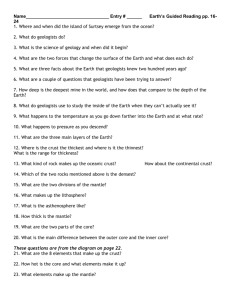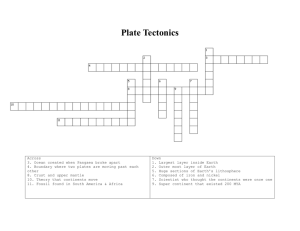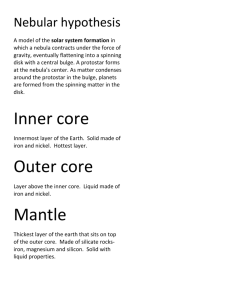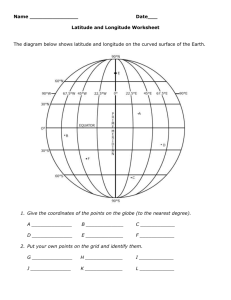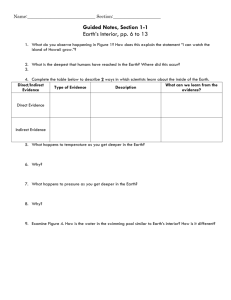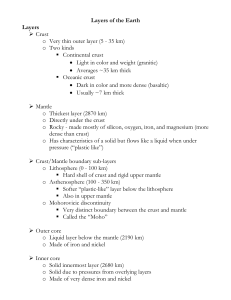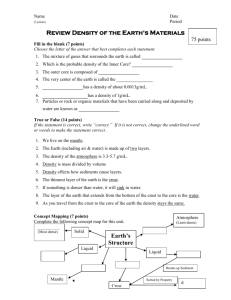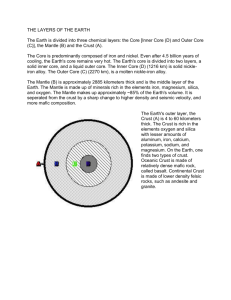Digging into the Past Background Info
advertisement
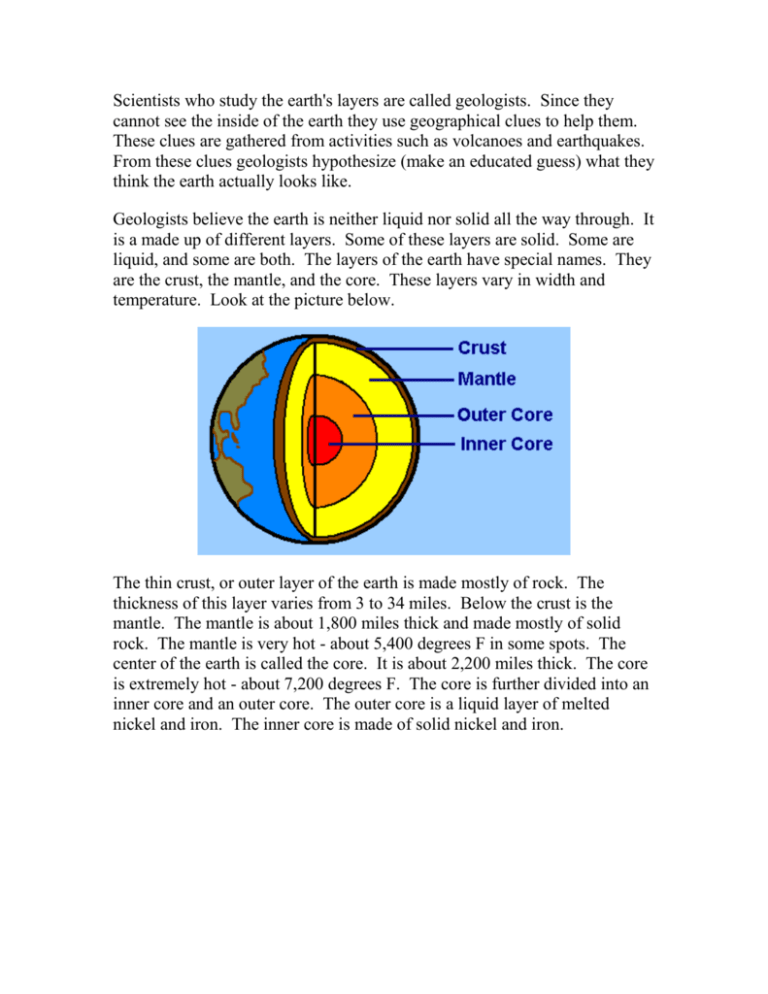
Scientists who study the earth's layers are called geologists. Since they cannot see the inside of the earth they use geographical clues to help them. These clues are gathered from activities such as volcanoes and earthquakes. From these clues geologists hypothesize (make an educated guess) what they think the earth actually looks like. Geologists believe the earth is neither liquid nor solid all the way through. It is a made up of different layers. Some of these layers are solid. Some are liquid, and some are both. The layers of the earth have special names. They are the crust, the mantle, and the core. These layers vary in width and temperature. Look at the picture below. The thin crust, or outer layer of the earth is made mostly of rock. The thickness of this layer varies from 3 to 34 miles. Below the crust is the mantle. The mantle is about 1,800 miles thick and made mostly of solid rock. The mantle is very hot - about 5,400 degrees F in some spots. The center of the earth is called the core. It is about 2,200 miles thick. The core is extremely hot - about 7,200 degrees F. The core is further divided into an inner core and an outer core. The outer core is a liquid layer of melted nickel and iron. The inner core is made of solid nickel and iron. Directions: Answer the questions about the inside of the earth. A scientist who studies the earth is called a . To hypothesize means to read make a guess make an educated guess cut apart and observe The thin outermost layer of the earth is called the . The layer below the thin outermost layer is called the The center of the earth is called the The layers of the earth vary in width and . . Which layer of the earth is the hottest? crust mantle core Which of the following statements is true? The mantle of the earth is made of solid nickel and iron. The crust of the earth is made of solid nickel and iron. The inner core is made of solid nickel and iron. The The is the thinnest part of the earth. is the thickest part of the earth. . ANSWER KEY Scientists who study the earth's layers are called geologists. Since they cannot see the inside of the earth they use geographical clues to help them. These clues are gathered from activities such as volcanoes and earthquakes. From these clues geologists hypothesize (make an educated guess) what they think the earth actually looks like. Geologists believe the earth is neither liquid nor solid all the way through. It is a made up of different layers. Some of these layers are solid. Some are liquid, and some are both. The layers of the earth have special names. They are the crust, the mantle, and the core. These layers vary in width and temperature. Look at the picture below. The thin crust, or outer layer of the earth is made mostly of rock. The thickness of this layer varies from 3 to 34 miles. Below the crust is the mantle. The mantle is about 1,800 miles thick and made mostly of solid rock. The mantle is very hot - about 5,400 degrees F in some spots. The center of the earth is called the core. It is about 2,200 miles thick. The core is extremely hot - about 7,200 degrees F. The core is further divided into an inner core and an outer core. The outer core is a liquid layer of melted nickel and iron. The inner core is made of solid nickel and iron. Directions: Answer the questions about the inside of the earth. A scientist who studies the earth is called a geologist . To hypothesize means to read make a guess make an educated guess cut apart and observe The thin outermost layer of the earth is called the crust The layer below the thin outermost layer is called the The center of the earth is called the core The layers of the earth vary in width and . mantle . temperature . Which layer of the earth is the hottest? crust mantle core Which of the following statements is true? The mantle of the earth is made of solid nickel and iron. The crust of the earth is made of solid nickel and iron. The inner core is made of solid nickel and iron. The crust is the thinnest part of the earth. The core is the thickest part of the earth. .
